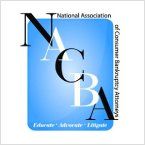CLIENT LOGIN
×Repossession
Automobile Repossessions and Creditor Repossession Practices
There are strict repossession laws in California, and repossession companies and creditors must comply with all that apply. Although these companies need not give notice before a repossession occurs, they must send you a special post repossession notice. If they don’t, or if the notice is inaccurate, it bars their ability to collect any judgment in court. Wage garnishment and other judgment collections can be prevented by a lawyer if the post repossession notice is defective.
What Should You Do If Your Property is Repossessed?
Believe it or not, under California law, even if you are only one day late on a payment, the creditor can generally repossess your automobile. However, unless you leased the automobile, you are entitled to “reinstate” the contract by paying the past due monthly payments plus any repossession and storage costs. After paying these amounts, you will probably get your automobile back and should continue your payments as usual. The creditor must send you a post-repossession notice which itemizes the amounts due, where to pay, and where to get your vehicle back. You may also call the creditor to get this information.
If you leased, you are not entitled to reinstate, but you are entitled to a written notice telling you when and where they will be selling the vehicle. If you cannot afford to reinstate, or you leased the automobile, the vehicle will be sold at auction. This is generally done 15 days after you get written notice of the sale. The creditor will then apply the proceeds of the sale to your loan balance. You will still owe the rest, which is called a “deficiency balance.” Be aware that the price received at auction is wholesale and you will probably still owe a large portion of the value. If you hope to reinstate, most creditors will accept 50% of a deficiency balance, often less, in full satisfaction of the account. However, you must get the arrangement in writing before paying.
Possible Defenses to Repossession
If you are sued after your automobile is repossessed do not ignore this issue and hope the problem will go away. You need to call us or another attorney before the deadline to answer the complaint passes (30 days in state court), or you might lose your rights. If a judgment has already been entered against you because you failed to respond, which is certainly the case if there is a wage garnishment involved, contact us to try to set it aside. The longer you wait, the less likely the court will allow you take corrective action. Don’t assume you have no defenses; you very well may. We can help you with this and, under California law, you are usually entitled to attorneys fees if you win your case.
You must receive notice of the sale before the vehicle is sold. Under California law, the creditor must send you and any co-signers a special post repossession notice. The post repossession notice informs you of your right to reinstate the loan, and must contain nine special disclosures. We will review the post repossession notice if you have been sued or contacted by a collection agency. If the post repossession notice was never sent, or if it does not contain all the required legal disclosures, the creditor may not collect any money from you.
If you were current on your payments and creditors wrongfully execute a repossession, or the vehicle is repossessed after you have been promised a grace period, repossession is like stealing your automobile, and you should contact us.
The Rules of Repossession — Breaching the Peace
Taking the vehicle from unsecured driveways, open carports, parking lots at work and city streets is generally allowed. But the repossession company may not:
- Enter a closed or locked garage, or otherwise break and enter onto property.
- Enter into your home, unless invited by you.
- Damage the vehicle during the repossession or attempts at repossession.
- Threaten you or commit violence.
- Touch anyone, force you out of the automobile, etc.
- Threaten you will be arrested.
- Claim the repossession agent is a police officer or has “special government authority.”
- Force you to pull over to the side of the road.
- Have law enforcement personnel present unless the creditor has already sued you.
Intimidation and Extortion Tactics
If you purchased your automobile, as opposed to leasing it, the creditor can only demand the past due monthly payments plus repossession and storage costs in order to reinstate the contract. The creditor absolutely cannot demand more than that before returning your automobile. Some outlaw creditors will demand amounts that are based on the value of your automobile, or tell you that you must pay more because you are a bad credit risk. If this happens, please contact us immediately.
Office Address
Powered by
© 2021 Consumer Law Center, Inc.. All Rights Reserved.







